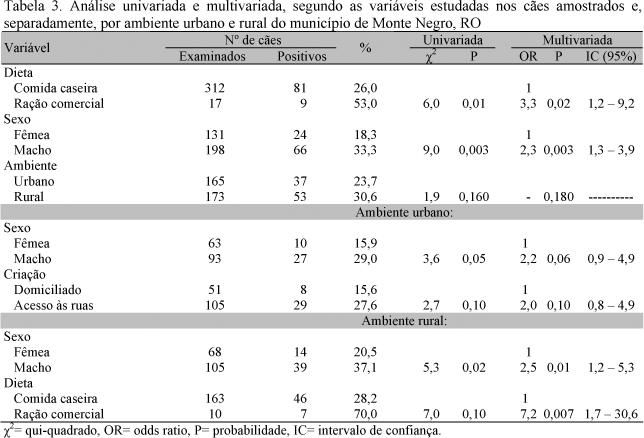The microscopic agglutination test was applied to 329 samples taken from 156 dogs from urban area and 173 from rural areas of Monte Negro County, Rondônia State, Brazil, to determine anti-Leptospira spp. antibodies. A survey was concomitantly done to detect eventual risk factors thru the use of logistic regression. Studied variables were age, sex, diet, management, environment, contact with other species and hunting habit. Titers >100 were detected in 27.3% (90/329) of the dogs, being 23.7% (37/156) urban and 30.6% (53/173) rural dogs. The most frequent serovars were Autumnalis (22.0%), Pyrogenes (12.0%), Canicola (10.0%) and Shermani (7.5%). Dogs older than 12 months showed higher positive frequencies than younger animals (P<0.05). Risk factor were associated with commercial food as compared to homemade food (odds ratio: 3.3; 95% confidence interval : 1.3 - 3.9; P=0.02) and associated with sex, with higher occurrence in males than in females (odds ratio: 2.3; 95% confidence interval: 1.3 - 3.9; P=0.003). It was emphasized the serological occurrence of serovars kept and spread in nature by wild animals.
dog; Leptospira spp.; risk factor; Amazon



